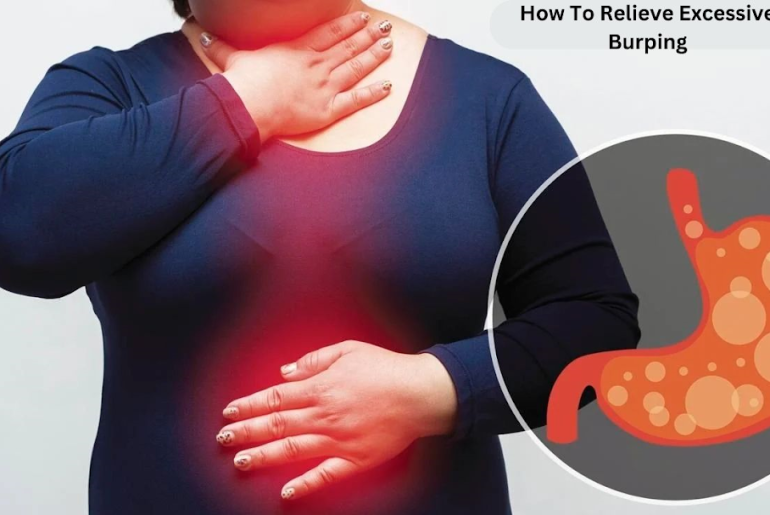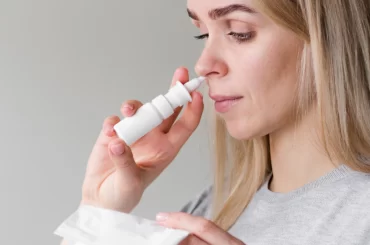Are you wondering why you can’t stop burping? The reason is – Excessive burping, also known as belching. It can be an uncomfortable and embarrassing experience for an individual who is facing this problem. Generally, burping is a common problem that can be caused by various factors such as diet, lifestyle, and underlying medical conditions. Belching is a natural way for the body to release excess gas from the stomach, but excessive burping can be a sign of an underlying problem. In this article, we will explore how to relieve excessive burping, some of the common causes of excessive burping, how to stop burping immediately at home and effective ways to relieve it.
Table of Contents
What are the causes of excessive burping?
Excessive burping, or belching, can be caused by a variety of factors. If you are wondering what is constant burping a sign of, it is generally caused by swallowing air while eating or drinking, which can lead to the accumulation of gas in the stomach. Certain foods and drinks can also contribute to excessive burping, particularly those that are high in fat, fibre, or sugar. Carbonated drinks, such as soda and beer, can also cause excessive burping due to the carbon dioxide gas they contain.
In addition to dietary factors, medical conditions can also contribute to excessive burping. Gastroesophageal reflux disease (GERD), a condition in which stomach acid flows back into the oesophagus, can cause frequent burping. Peptic ulcers, gallbladder disease, and inflammation of the stomach lining (gastritis) are other medical conditions that can lead to excessive burping. Anxiety and stress can also cause some people to swallow air and experience more frequent burping.
ALSO READ :- How to relieve head pressure from coughing: Strategies to Ease Discomfort
What foods should I avoid to prevent excessive burping?
If you are burping a lot then there is a high chance of certain foods and drinks behind this problem. So, you should have to avoid it in order to reduce the frequency and intensity of your burping. Here are some examples:
1. Carbonated drinks
Beverages that contain carbonation, such as soda, beer, and sparkling water, can cause excessive burping due to the carbon dioxide gas they contain.
2. Fatty or fried foods
High-fat foods, especially those that are deep-fried, can slow down the digestion process and lead to the buildup of gas in the stomach.
3. Spicy foods
Spicy foods can irritate the stomach lining and lead to the production of excess stomach acid, which can contribute to burping.
4. Beans and lentils
Legumes like beans and lentils contain complex sugars that can be difficult to digest, leading to the production of gas in the intestines.
5. Dairy products
Some people may be lactose intolerant, which means they have difficulty digesting lactose, a sugar found in milk and dairy products. This can lead to the production of gas and excessive burping.
6. Chewing gum
Chewing gum can cause you to swallow more air, leading to an increased likelihood of burping.
ALSO READ :- How to know if you have a concussion:Recognize the Symptoms
How to relieve excessive burping?
There are several ways to relieve excessive burping, depending on the underlying cause. Here are some effective strategies:
Eat and drink slowly
Eating and drinking too quickly can cause you to swallow air, which can contribute to excessive burping. Eating and drinking slowly and taking smaller bites can help reduce the amount of air you swallow.
Avoid chewing gum and smoking
Chewing gum and smoking can also cause you to swallow more air, leading to increased burping. If you’re trying to reduce excessive burping, it’s best to avoid these habits altogether.
Practice stress reduction techniques
Stress and anxiety can cause you to swallow more air and contribute to excessive burping. Practising stress reduction techniques, such as deep breathing exercises or meditation, can help alleviate stress and reduce the frequency of burping.
MUST SEE :- Using Flonase for Effective Allergy Relief: A Comprehensive Guide
How to stop burping immediately?
Here are some of the effective ways for how to stop burping immediately:
Drink ginger tea
Ginger has natural anti-inflammatory properties that can help reduce inflammation in the stomach lining and alleviate digestive discomfort. Drinking ginger tea or chewing on fresh ginger can help relieve excessive burping.
Take over-the-counter antacids
Antacids can help neutralise stomach acid and relieve symptoms of acid reflux, which can contribute to excessive burping. You can find antacids at most drugstores.
Try probiotics
Probiotics are beneficial bacteria that can help improve digestive health and reduce the production of gas in the intestines. Eating foods rich in probiotics, such as yoghourt and kefir, or taking a probiotic supplement can help alleviate excessive burping.
Are there any home remedies for burping excessively?
Yes, there is a list of home remedies for burping. Take help of the following:
- Peppermint oil
- Chamomile tea
- Apple cider vinegar
- Fennel seeds
- Activated charcoal
When should I see a doctor about my excessive burping?
You experience any of the following symptoms along with excessive burping, it’s important to see a doctor:
- Persistent or severe abdominal pain
- Nausea or vomiting
- Unexplained weight loss
- Difficulty swallowing
- Chest pain or tightness
- Shortness of breath
- Bloody or black stools
- Loss of appetite
Conclusion
In conclusion, finding relief from excessive burping involves a combination of mindful dietary choices, proper eating habits, and potential medical guidance. By adopting a balanced approach and implementing the strategies outlined above on how to relieve excessive burping, you can effectively manage and reduce excessive burping, leading to a more comfortable and enjoyable daily life. Remember, if your symptoms persist or worsen, consulting a healthcare professional is always advisable to ensure your health and well-being.
Frequently Asked Questions
Q1: What is the connection between bloating and excessive burping?
Ans: Excessive burping can be a symptom of bloating, as both can be caused by the accumulation of gas in the digestive tract.
Q2: How long does excessive burping usually last?
Ans: The duration of excessive burping can vary depending on the underlying cause and individual factors. It can last from a few hours to several days or even weeks.
Q3: Are there any surgical treatments for excessive burping?
Ans: In rare cases, surgery may be recommended to treat excessive burping caused by certain medical conditions such as GERD.
Q4: Can excessive burping be a sign of a heart attack?
Ans: While excessive burping is not typically a symptom of a heart attack, it’s important to seek medical attention if you experience chest pain or discomfort along with excessive burping.
Q5: How is excessive burping diagnosed?
Ans: Excessive burping is usually diagnosed based on a physical exam, medical history, and symptoms. In some cases, additional tests such as imaging or endoscopy may be needed.


